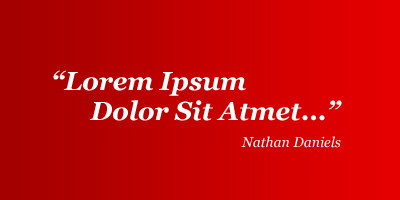| NATO PA Riga Session to focus on Alliance’s future challenges |
 |
|
More important than the benefits for Latvia in terms of economy and prestige will be the expected contribution of the NATO PA Riga Session to further development of the Alliance. During more than 60 years of its existence, as an added value to the military defence, NATO has also developed a powerful and value-based security dimension. In the course of years, reports at the Parliamentary Assembly and related debates have become more multifaceted and research based. One might say that the NATO PA has become NATO’s think tank. We are aware that threats to security have grown rather than diminished. These threats have political causes: ever-growing global radicalism, authoritarianism, and lack of democratic values. In my opinion, countries that pose these threats are even more afraid of the power of NATO’s democratic values than of the military capacity of the organisation. The task of the NATO PA is to strengthen the dimension of these democratic values and principles for the sake of security of all of us. The agenda of the NATO PA Spring Session contains various significant issues that will influence the Alliance’s further work and will confirm the solidarity of the member states. Special emphasis will be placed on the Alliance's New Strategic Concept. In this document, the North Atlantic Treaty Organisation’s vision on new global security challenges will be defined. Military issues are not the only ones on NATO’s agenda. Nowadays, significant threats to the security of the member states can also be posed by cyber attacks, energy dependence, and international terrorism. On 16 April, after two years of intensive work, MPs from NATO member states submitted to Mr. Anders Fogh Rasmussen, NATO Secretary General, their vision on what should be included in the Alliance's New Strategic Concept. At the end of May, Mr. Rasmussen will inform MPs on the progress in drafting the NATO Concept. It is important to note that two equally important consultation documents have been submitted to the Secretary General. The first one was drafted by an expert group led by former U.S. Secretary of State Madeleine Albright. Mr. Aivis Ronis, newly elected Latvian Minister for Foreign Affairs, also worked in this group. The other document reflects the parliamentary dimension in the process of drafting NATO’s New Strategic Concept because it was prepared by parliamentarians of NATO member states. One can say that the parliamentarians’ proposal goes hand in hand with the document drafted by the expert group. I would like to stress that, to a large extent, the priorities set by the PA for the New Strategic Concept are in tune with the interests of NATO’s member states in Central and Eastern Europe, including Latvia. I will not hesitate to say that this fact proves the ability of these countries to influence NATO’s agenda; it also proves that within the Alliance, member states are not classified as small and large or old and new. What are Latvia’s interests in the new strategic document? I believe that the relevance of NATO’s collective security principle should be re-emphasised not only verbally but also by drafting specific defence plans and carrying out military exercises in the Baltic States. In the document submitted by the NATO PA, Article V of the North Atlantic Treaty, which refers to collective security, is highlighted as the most essential priority. The collective security principle has always been at the core of the Alliance’s activity, and it should remain as such in the future. The fact that Article V is stressed in the PA document is indisputably the contribution of Central and East European member states. In Riga the Parliamentary Assembly’s Political Committee will discuss the solidarity of the Alliance’s member states. At present, this solidarity is being tested in the NATO-led mission in Afghanistan and in transatlantic relations, as well as in NATO relations with Russia, e.g., in connection with selling to our eastern neighbour Mistral-class helicopter carriers. The debate in Riga will reveal the opinions of member states on the principle of solidarity and the potential uniting factors that could help the Alliance to ensure the observance of this principle. At the Riga Session, NATO member state parliamentarians will also discuss the possibility of lifting the procedural sanctions, imposed after the military conflict between Russia and Georgia, with regard to Russia’s participation in the work of the PA. The lifting of sanctions was proposed immediately after the agreement between the U.S. and Russia on nuclear arms reduction was reached as part of the Strategic Arms Reduction Treaty (START). In my opinion, this issue is much broader. It is important to see whether Russia meets its commitment to withdraw its military forces from the Georgian territory and how it solves human rights issues in its own territory. Another significant issue will be strengthening of cooperation between NATO and the EU. We have to work more actively to avoid the overlapping of the functions of both organisations because the military forces used in NATO-led military operations and in implementing the tasks of the EU’s Common Foreign and Security Policy are the same. The NATO parliamentary dimension has always been more open, sharper and more definite than NATO itself. It was the NATO member states that encouraged its enlargement in the eastern direction and Latvia’s inclusion in the world’s largest security organisation. At the end of May, we expect to have heated discussions about the unity of NATO member states and the future of the organisation – matters that undoubtedly will leave their mark in the history of the Alliance.
|




 Very soon, from 28 May to 1 June, Latvia is going to welcome the participants of the Spring Session of the NATO Parliamentary Assembly (PA). Once again hundreds of prominent foreign politicians will convene in Riga, and Latvia’s name will resound in the international arena. Hosting such an international event will raise Latvia’s international prestige and confirm our organisational ability. The event will also help to boost our economy.
Very soon, from 28 May to 1 June, Latvia is going to welcome the participants of the Spring Session of the NATO Parliamentary Assembly (PA). Once again hundreds of prominent foreign politicians will convene in Riga, and Latvia’s name will resound in the international arena. Hosting such an international event will raise Latvia’s international prestige and confirm our organisational ability. The event will also help to boost our economy.